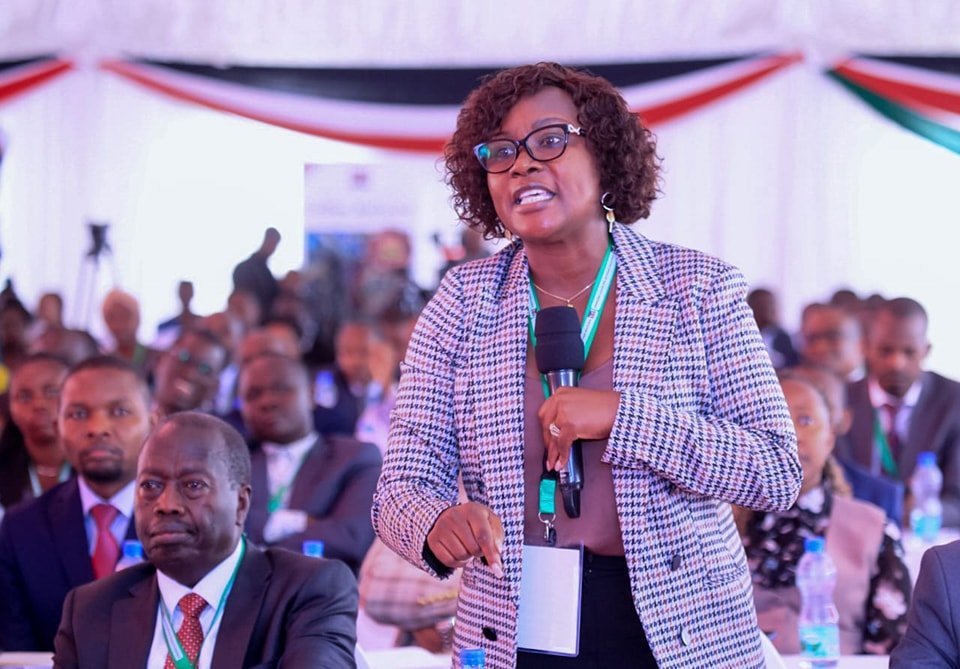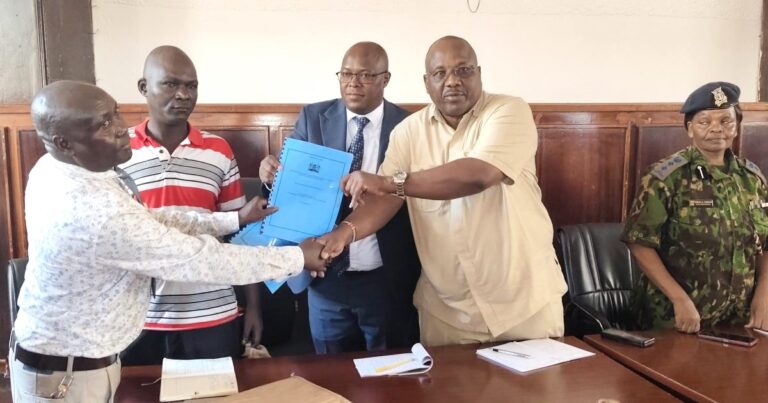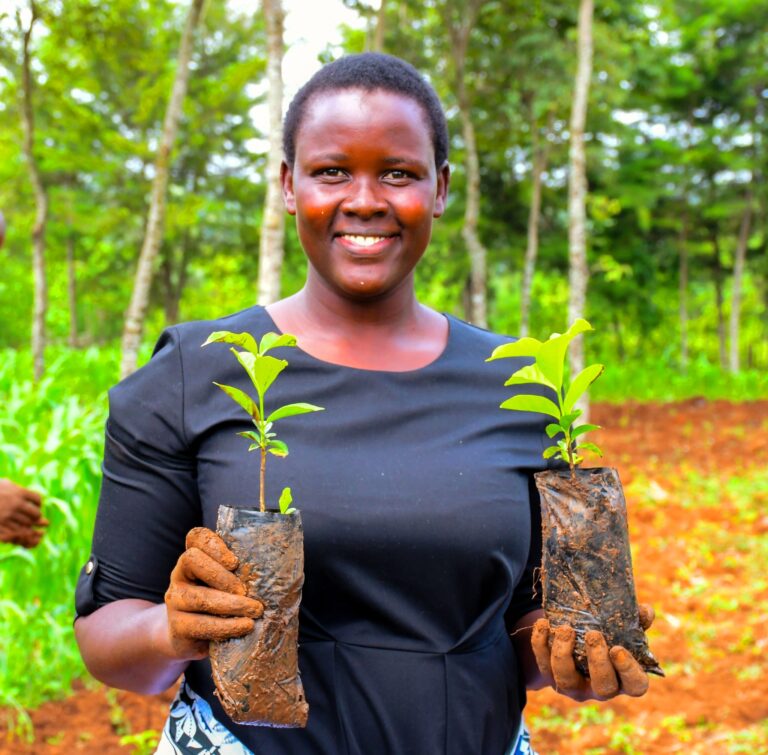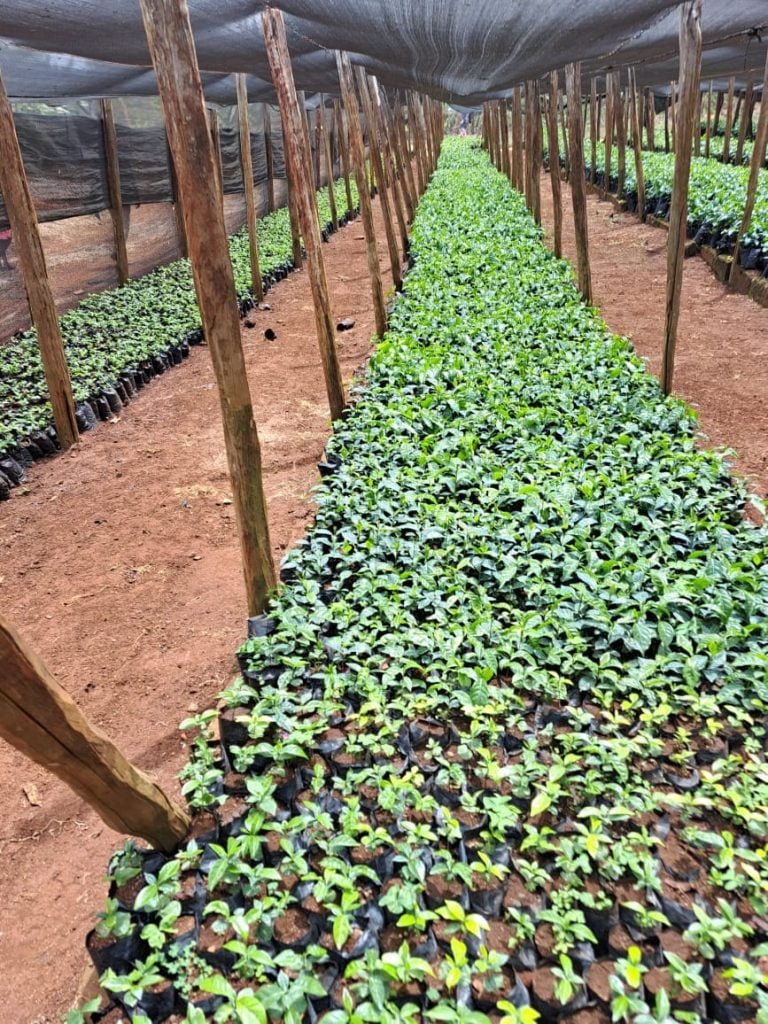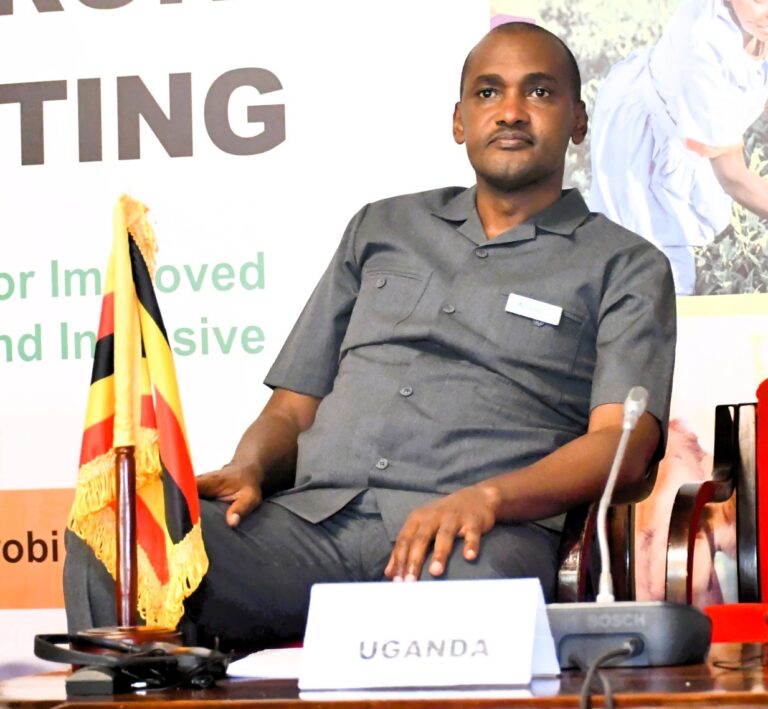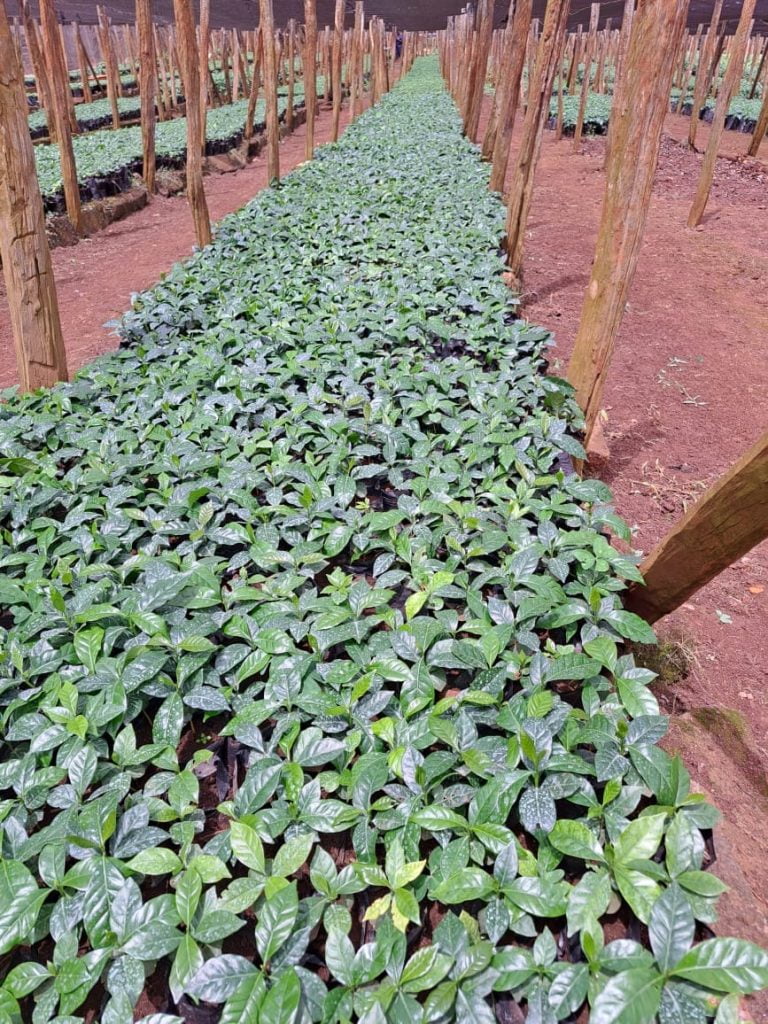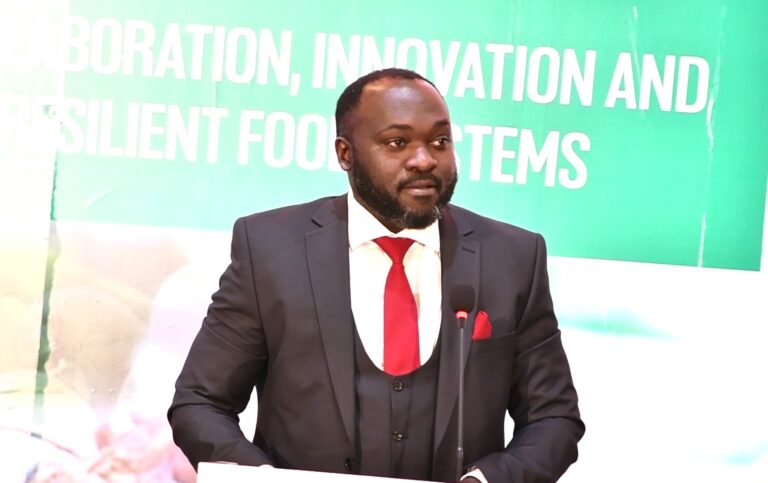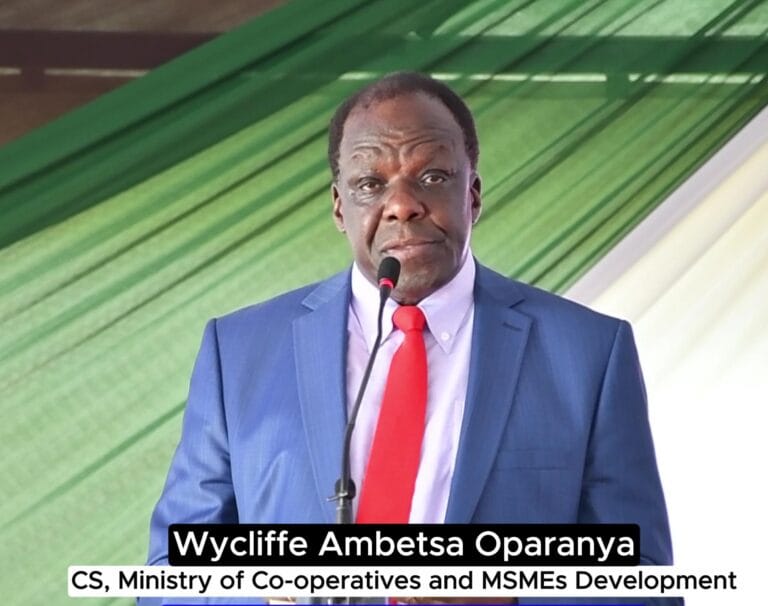By Kimuri Mwangi
If there has been a term synonymous with poor coffee returns and the problems afflicting the whole value chain in Kenya it is “coffee cartels”.
The late Nyeri Governor Nderitu Gachagua used the term countless times when he tried aggregating the Nyeri County Coffee and finding a direct buyer. He blamed coffee cartels for frustrating him saying they even followed him into America and other countries he visited seeking buyers.
History would repeat itself during the recent Coffee Reforms Conference held in Meru when another Gachagua took on the same cartels. This time, Rigathi Gachagua, a brother to the late Governor warned the coffee cartels that their time was up. He also repeated his late brother’s words of how the cartels have infiltrated the coffee value chain impoverishing the smallholder farmers. He also remembered the fight his brother had with them saying they even pushed him to his grave.
Pointing at how powerful and dangerous they were, he said that they needed a powerful person to deal with them since they had grown more daring. But this time round he beat the war drums while opening the conference saying he was the right person to face them as the Deputy President of the country with the backing of President Ruto saying their day had come. He had been given the mandate by the President to convene the meeting and find a lasting solution to the coffee problems facing farmers.
The mood had been set and the participants were upbeat that the great day had come. There were farmers, technocrats, Members of the National Assembly, Senators, Permanent Secretaries, Cabinet Secretaries, Governors, Companies dealing with coffee and other stakeholders. The official opening by the Dp was followed by a plenary session discussing the aspirations of the Kenya Kwanza Bottom-up economic transformation model to bring coffee back to profitability. This was followed by question time arising from the discussion.
It is at this juncture that Embu Governor Cecily Mbarire stood up and set the house on fire.
“I want to get to the bottom of it without mincing words. One, our coffee sector is predominantly three companies and I will mention them. I don’t know why we don’t want to mention them. We have Neumann, we have Ecom and Sucafina. They mill in the following companies. Neumann has a milling company called NKG Coffee Mill, Ecom has a milling company called Central Kenya Coffee Mill, Sucafina has Kahawa Bora Millers and Ecom again has another one called CMS Mills Limited.
The same companies transform themselves into marketers. Ecom has a marketing company called Coffee Management Services. Neumann has a marketing company called Tropical Farm Management. Sucafina has one called Suca Sustainability. Ecom has another one called Oaklands Coffee Management. Ecom has another one called Sustainability Management.
Then they move ahead and become buyers. Neumann has one called Ibero, a buyer. ECOM has one called C Dormans. Sucafina has Kenya Coffee Limited.
Now, if we don’t deal with those cartels because those are the cartels we are talking about, we will be wasting two days here pretending, talking, going around and we are not mentioning those names. I have mentioned them, let me see what happens to me today. It’s about time we face those people on the face and tell them enough is enough. So, stop going around these stories.
And they come every time key ministers are appointed; all they do is go to them with briefcases with dollars and then they stop taking care of the farmers. So today I want to know if are we dealing with these cartels or not. And if we are dealing with them, how? Because let me tell you, we cannot continue to lead farmers who are suffering not because they don’t work hard, but because we have cartels who have taken over even those Cooperative Societies. They make sure these Cooperative Societies never work. When there are elections there are Chairmen they prefer, they finance them, and they give them money to take their coffee to be milled in their milling companies. We must deal with them squarely. And that is what I want to hear happening today.
Otherwise mutwambie hatuwezi na muambie Deputy President hamuwezi, tutoke twende. Na tusidanganyane hapa, (otherwise tell us we can’t and tell the Deputy President you can’t, then we get out and go. And let’s not lie to each other here) this is the problem. Let us face it today,” said Mbarire.
With the naming of the companies, the Embu Governor had put the ball squarely at Linturi’s feet, the Agriculture CS, as she was cheered on by the attendants. He was ready but he was jeered by the farmers when he said that he had heard of the companies at that time. He threw the ball to the Agriculture and Food Authority (AFA) which licenses the companies in the coffee value chain.
The Acting Director at the Coffee Directorate under AFA Benson Apoyo, confirmed to the attendants that the companies as outlined by the Governor had been licensed by AFA.
Linturi then declared that this week, he was going to revoke the licenses and have the companies apply afresh. By the time of publishing this story, this had not yet happened.
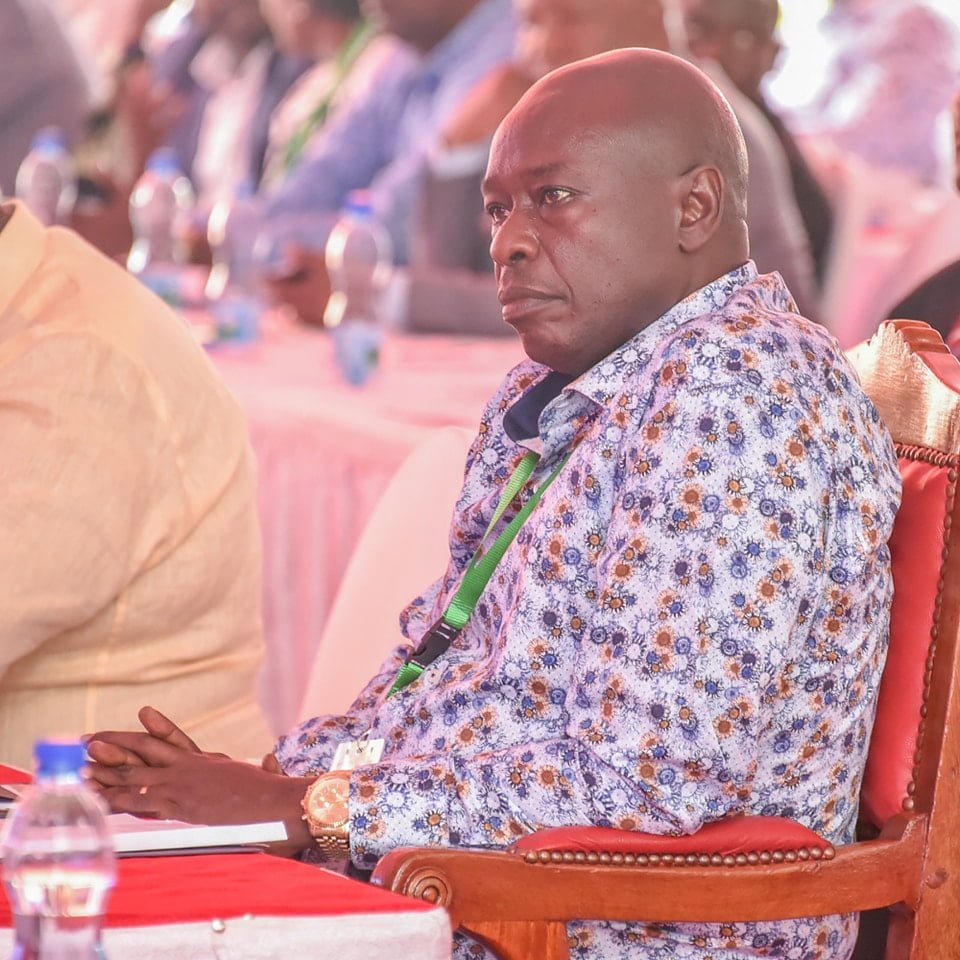
The main focus of the discussions that followed was based on the Governors remarks with the Cabinet Secretary for Investment, Trade and Industry Moses Kuria explaining how fighting the cartels to him was personal since he was a consultant to the late Nyeri Governor Nderitu Gachagua on matters coffee reforms. He narrated how they were frustrated in their quest to transform the marketing aspect of the coffee value chain in Nyeri County.
Nyeri Governor Mutahi Kahiga also narrated how he had warned Agriculture CS Mithika Linturi immediately after he was appointed that he had information that the cartels had met and raised Kshs. 30 million and they were planning to take the cash to him. Kahiga said he was glad that the CS never took the money and that is the reason that the cartels’ debate had reached that point.
Njeru Ndwiga, a former Mp and Embu Senator who was a Cooperative Development Minister during President Kibaki’s tenure illustrated how important the Kenyan Coffee market was important to various players internationally. The former Minister narrated how he had also teamed with the late Nderitu Gachagua to declare that the Kenyan coffee would no longer leave Mombasa in bags but in cans after value addition.
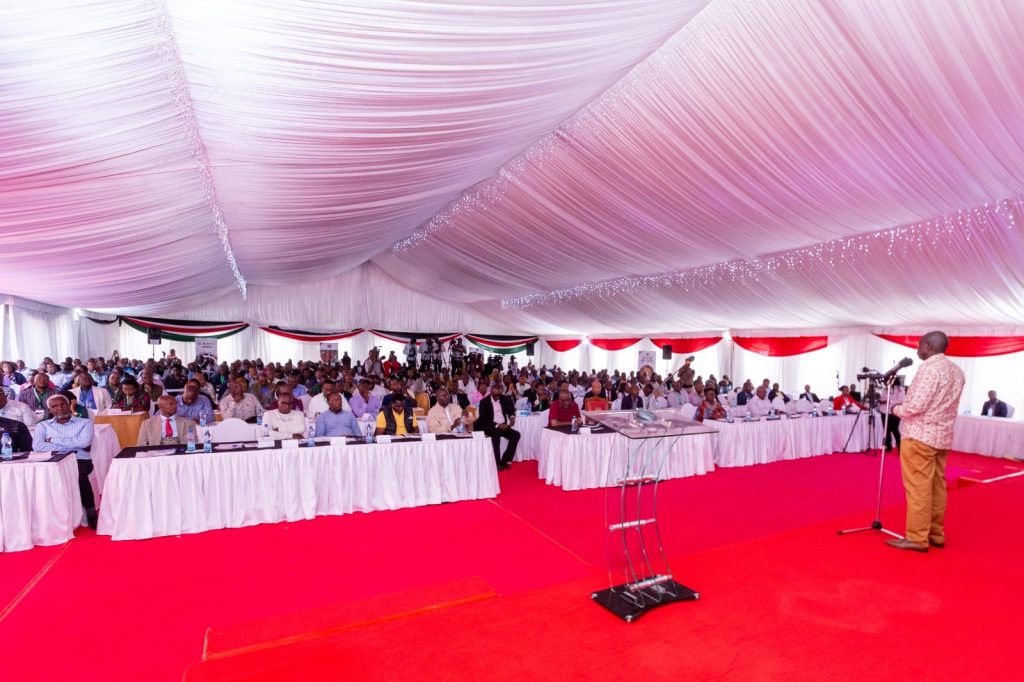
“We had come from Berlin Germany where the country was congregating all the world’s coffees. At that time Germany was the biggest exporter of coffee but they didn’t have even a single coffee bush in that place. When we came back, we said that it was not fair for them to dictate to us how much they will buy our coffee. At a meeting where President Kibaki was present, we asked why was it that when we want to buy a Mercedes, we walk into a showroom and the price is fixed there is no room for negotiation, take it or leave it. So how is it then they are telling us how we should take our coffee to them? This prompted the then German Chancellor to come to Kenya to see the President,” opined Ndwiga.
Among the many deliberations and outcomes from the conference, it seems it had also succeeded to put names into the term, coffee cartels.


